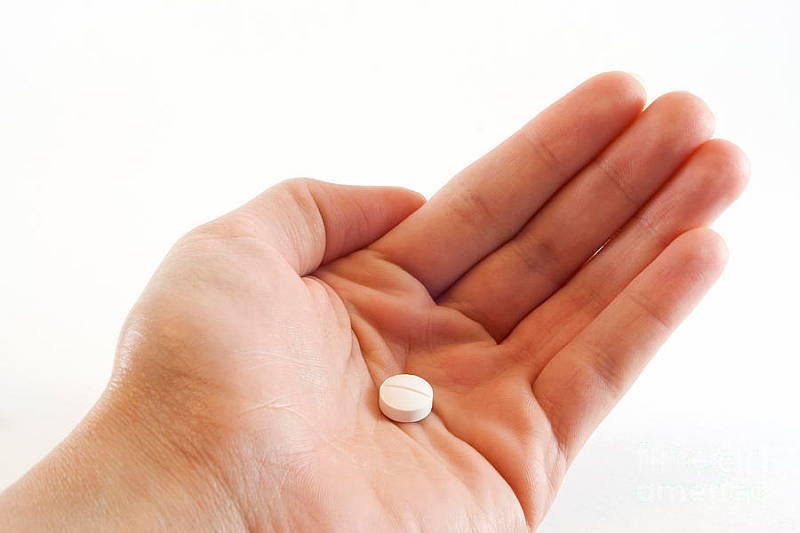
Thyroid replacement therapy is most commonly used in patients who have clinical hypothyroidism. This also includes patients with conditions such as Hashimoto’s thyroiditis, and those who have previously undergone thyroidectomy.
Thyroxine
Thyroxine is also known as levothyroxine or simply, T4. It is a synthetic version of the hormone naturally produced by the body. Thyroxine is the treatment of choice for patients requiring thyroid hormone replacement therapy. Thyroxine is cheap and stable, and its levels can be easily measured in the blood for the purposes of monitoring. In addition, being a synthetic drug, it lacks proteins on the surface of the cell (antigens) that may be recognised by the immune system as foreign, preventing an immune response. Such immune responses may occur to thyroid hormones derived from animal thyroid sources. Thyroxine is converted by the body to T3, and hence, effectively both T3 and T4 are being administered. Thyroxine has a long half-life which means that the preparation only needs to be taken once daily, rather than multiple times per day.
Mechanism of Action
Thyroxine acts the same way as T4 produced by the body. It circulates in the bloodstream bound to thyroid binding globulin, a type of protein in the blood. At the target tissue, thyroxine dissociates from thyroid binding globulin and enters the target cell. Inside the cell cytoplasm, an enzyme called 5’-deiodinase converts thyroxine to T3. T3 enters the nucleus of the cell and binds to its receptor, where it increases the formation of RNA which is then translated to proteins required for cellular function. Thyroid hormone receptors are found throughout many body sites, hence, administration of thyroxine can affect many body systems.
Thyroxine is essentially a synthetic replacement for the body’s natural hormone and its administration relieves the symptoms of hypothyroidism, which include:
- Hair loss
- Weight gain
- Cold sensitivity
- Slowed speech
- Lethargy, fatigue and lack of energy
- Thickened, dry skin
Some of the effects that thyroxine exerts on the body include:
- Increases heart rate and cardiac output
- Increases the respiratory rate
- Enhancing the effect of the catecholamines (adrenaline, noradrenaline) and the activity of the sympathetic nervous system
- Increases metabolism
- Potentiates the development of the brain
Side Effects
As with all medications, there are potential side effects of thyroxine therapy. The main adverse effects that have been observed are related to excessive dosage, hence, the adverse effects mirror the state of hyperthyroidism:
- Tachycardia (fast heart rate)
- Arrhythmia (abnormal heart rhythm)
- Diarrhoea
- Weight loss
- Flushing
- Insomnia
With incorrect dosing, there are risks for people with pre-existing ischaemic heart disease may experience worsening of their symptoms. Post-menopausal women treated with thyroxine are also at risk of lowered bone density.
With correct dosing and monitoring, these risks can be minimised. The most recent guidelines proposed by the American Thyroid Association advise that T4 therapy is still the best management option for patients with hypothyroidism. Studies of T3 therapy have not produced sufficient evidence to warrant a change in therapy from T4 to T3. Furthermore, studies analysing T3 therapy are of insufficient length to determine long-term safety and adequate evaluation of side effects. T4 remains the gold standard treatment for hypothyroidism.
The task force concluded that levothyroxine (T4) should remain the standard of care for treating hypothyroidism, noting that no consistently strong evidence supports the superiority of alternative therapies. They emphasize that the recommendations are intended to guide physicians’ clinical decision-making on thyroid hormone replacement therapy for individual patients.
If you have questions about the thyroid gland contact your local doctor who will arrange for you to see a thyroid surgeon.
